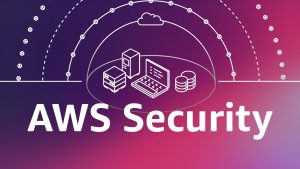According to Gartner Inc.’s ‘cloud shift’ research, by 2025, most IT spending in four major categories: application software, infrastructure software, business process services, and system infrastructure will shift from traditional to cloud services. The shift is anticipated to increase from 41% to 51%.
Due to this increasing transition to cloud services, The Securities and Exchange Board of India (SEBI) has implemented a framework to ensure that regulated entities follow guidelines for adopting cloud services such as Azure.
SEBI, or the Securities and Exchange Board of India, is a regulatory body responsible for supervising the securities market in India. As technology advances, SEBI has recognized the importance of cloud-based storage for regulated entities such as brokerages, mutual funds, and investment advisers.
Importance of Following SEBI Guidelines for Regulated Entities on Azure Cloud
By following SEBI’s guidelines on Azure Cloud, regulated entities can ensure that they meet the necessary data storage, protection, and access control measures required by the regulator. Failure to comply with these regulations could lead to severe penalties or even suspension of trading privileges.
Adherence to SEBI’s framework helps maintain a level playing field across all market participants and promotes transparency within the financial sector. Regulated entities must take the necessary steps toward compliance when adopting new technologies like Azure Cloud to avoid any potential legal consequences in future dealings.
Overview of SEBI Regulations
Regulated entities face various security threats regarding cloud-based storage, such as leakage or theft of sensitive information. To mitigate these risks, SEBI outlines regulations for cloud service providers on how they should handle their clients’ data.
SEBI’s regulations require regulated entities to conduct regular audits and risk assessments to identify potential vulnerabilities in their systems. They must adhere to strict protocols for access control measures like authentication, authorization, and encryption.
SEBI’s Framework for Cloud Computing
SEBI’s framework for cloud computing incorporates nine key principles, which include:
- Governance, risk, and compliance sub-framework (GRC)
- Selection of cloud service providers (CSPs)
- Data ownership and data localization
- The Responsibility of the regulated entity
- Due diligence by RE
- Security controls
- Contractual and regulatory obligations
- BCP, Disaster Recovery & Cyber Resilience
- Vendor Lock-in and Concentration Risk Management
Types of Security Threats and Challenges Faced by Regulated Entities
While migrating their data and applications to the cloud, regulated entities face various challenges and security threats that need to be addressed, such as:
- Ensuring the confidentiality, integrity, and availability of sensitive data in a shared environment. The risk of unauthorized access or data breaches can result in financial losses, reputational damage, and non-compliance with regulatory requirements.
- Potential risks, including insider attacks or malicious insiders who exploit system vulnerabilities for their gain.
- Governance issues, including monitoring third-party vendor performance against contractual obligations regarding compliance requirements.
Guidelines for Cloud Service Providers
SEBI guidelines emphasize the importance of outsourcing agreements between regulated entities and cloud service providers. It requires CSPs to disclose their company profile, security policies, and procedures before entering into an outsourcing agreement with SEBI-regulated entities.
Furthermore, SEBI mandates that any data hosted on cloud servers located outside India should be encrypted both during transmission and at rest. It also highlighted that users’ access to data must be authorized based on a need-to-know basis.
Azure Cloud Services
Cloud computing has become integral to businesses, providing flexibility, scalability, and cost-effective solutions. Azure is a popular cloud platform that offers a wide range of services to suit the diverse needs of organizations.
Overview of Azure for Regulated Entities
Azure is a Microsoft flagship cloud service designed to help businesses store, manage, and process their data. The platform is designed with compliance in mind and has numerous certifications, including ISO 27001, HIPAA, FedRAMP, and more. These standards help companies follow the latest regulations and industry best practices.
Benefits of Azure for Regulated Entities
Regulated entities can benefit from using Azure in the following ways:
- Azure provides advanced security features and strict access controls to prevent data breaches, ensuring regulatory compliance.
- With its ability to scale up or down as required, Azure allows businesses to quickly adjust their computing resources without any downtime or significant cost.
- Azure’s pay-per-use model enables regulated entities to save costs by paying only for the resources they use.
- As a global cloud provider with more than 60 regions around the world, Azure can help regulated entities meet regional compliance requirements and expand into new markets seamlessly.
Risks and Challenges in Azure Cloud for Regulated Entities
One critical area of risk in Azure Cloud is security since regulatory compliance requires robust security measures to protect sensitive data. In addition, there is always uncertainty regarding third-party management of cloud infrastructure, which necessitates continuous monitoring and auditing processes.
SEBI’s New Framework of Cloud Adoption for Regulated Entities
Concerning the adoption of cloud computing services, SEBI issued guidelines for Regulated Entities (REs). RE needs to work in adherence to the guidelines prescribed below:
- It majorly includes security standards and regulatory compliance baselines. The end goal is to identify critical cloud computing risks and ensure the implementation of appropriate control measures.
- The framework emphasizes the importance of prioritizing risk assessment and implementing controls to monitor and ensure regulatory compliance.
- Concerning cloud-based computational solutions, SEBI guidelines also lay out the legal and regulatory requirements that RE must comply with.
- The circular also outlines the guidelines for developing a robust risk management strategy for cloud adoption.
Data Storage, Data Protection Requirements, and Access Control Measures
SEBI’s new framework has laid out specific requirements that regulated entities must follow to ensure the safe storage and protection of their sensitive data.
One of the key requirements is that the cloud service provider must store all data within India. This ensures that any personal or confidential information remains within Indian borders, making it subject to Indian laws regarding data privacy and protection.
Additionally, SEBI mandates strict access control measures when it comes to cloud services. Regulated entities must implement multi-factor authentication protocols to prevent unauthorized access from hackers or cybercriminals.
Requirements for Data Backups and Disaster Recovery
Regulated entities must have a robust backup plan that includes regular backups at frequent intervals. This plan should also consider different scenarios where data may need to be recovered, such as hardware failure or malware attacks. The frequency of backups will depend on the nature of business operations and how often changes occur.
In addition to having a reliable backup system in place, regulated entities must have an effective disaster recovery strategy. This involves identifying potential risks that could cause disruptions and developing plans to manage these risks proactively. The goal, here, is to recover lost data and ensure business continuity during unexpected incidents.
It’s important for regulated entities using cloud services to test their backup and disaster recovery procedures regularly. Regular testing helps uncover gaps in the system before they become major problems when real disasters strike.
Best Practices for Managing Azure Privileges
When it comes to managing Azure privileges for SEBI-registered entities, following best practices is crucial.
For a multi-tenant structure, the entity must have visibility across all subscriptions and production networks to assess risks and ensure compliance with internal policies and regulatory requirements. A global Administration in Azure AD can grant themselves the User Access Administrator role for a complete view of subscriptions and management groups associated with the environment.
Data encryption is also crucial, and Azure offers a range of data storage solutions such as file disk, blob, table storage, Azure SQL Database, Azure Cosmos DB, and Azure Data Lake for the encryption process. Data can be included in files, optical media, archived data, and data backups. Adhering to these best practices can help ensure Azure cloud privileges are managed securely and efficiently.
Leveraging Cloudlytics CSPM for Adherence to SEBI’s New Framework
Cloudlytics CSPM is the perfect solution for SEBI-registered entities who are looking to comply with SEBI’s strict regulatory guidelines. It offers a comprehensive suite of tools that can help organizations monitor and analyze potential security risks in real-time and provide continuous assessment and validation of regulatory compliance.
Real-time Monitoring, Analysis, and Reporting on Security Risks
With Cloudlytics CSPM’s advanced features, such as cloud asset inventory management, configuration and compliance checks, risk analysis, alerting & reporting mechanism, etc., at their disposal, organizations can easily identify vulnerabilities or misconfigurations in their systems that could lead to data breaches or other security incidents. Additionally, it helps instill confidence in customers’ minds knowing they trust an organization that follows globally accepted standards like SEBI.
Providing Continuous Security Assessment and Regulatory Compliance
Cloudlytics CSPM automatically monitors your infrastructure round-the-clock, so you never have to worry about whether you’re meeting compliance requirements or not. It takes care of everything for you! From maintaining secure configurations on servers or databases or applying certain level multi-factor authentication, Cloudlytics has got you covered.
Benefits of Cloudlytics CSPM for SEBI-registered Entities on Azure Cloud
Cloudlytics CSPM offers several benefits for SEBI-registered Entities on Azure Cloud:
Improved Security Posture
It improves an organization’s security posture by providing continuous monitoring and assessment of cloud infrastructure, identifying potential misconfigurations and vulnerabilities that can lead to data breaches or other security incidents. This helps organizations stay ahead of threats and ensure their sensitive data is protected.
Faster Compliance and Risk Assessment
Cloudlytics CSPM enables faster compliance and risk assessment by automating the gathering of evidence required for audits. Organizations can easily generate compliance reports and monitor their compliance status in real-time, ensuring they consistently meet regulatory requirements.
Improved Visibility and Control
Cloudlytics CSPM provides improved visibility and control over cloud resources, allowing organizations to manage them effectively while detecting any unauthorized activity promptly. The solution offers a single pane view into an entire Azure environment enabling quick identification of deviations from best practices and reducing mean time to respond (MTTR) in case any issue arises during system operation.
Encourage Cloud Adoption and Innovation
With its comprehensive features set coupled with automated deployment capabilities across multiple subscriptions & environments, Cloudlytics CSPM encourages cloud adoption without compromising security posture, helping businesses innovate with ease at scale securely.
Conclusion
SEBI regulations play a critical role in ensuring the security of regulated entities operating on the Azure cloud. Compliance with these guidelines can be challenging for many organizations due to the complex nature of cloud computing and evolving cyber threats.
However, as more and more enterprises shift their operations to the cloud, it is essential to follow SEBI’s framework for cloud adoption to maintain regulatory compliance and protect sensitive data from potential breaches.
To address these challenges, leveraging an intelligent CSPM tool like Cloudlytics can simplify compliance efforts by providing real-time monitoring and analysis of security risks on Azure Cloud. This allows organizations to focus on innovation while maintaining a robust security posture.
Following SEBI guidelines help ensure regulatory compliance and enhances data protection measures against cyber threats. With tools like Cloudlytics CSPM at your disposal, achieving compliance becomes faster and easier than ever before.








